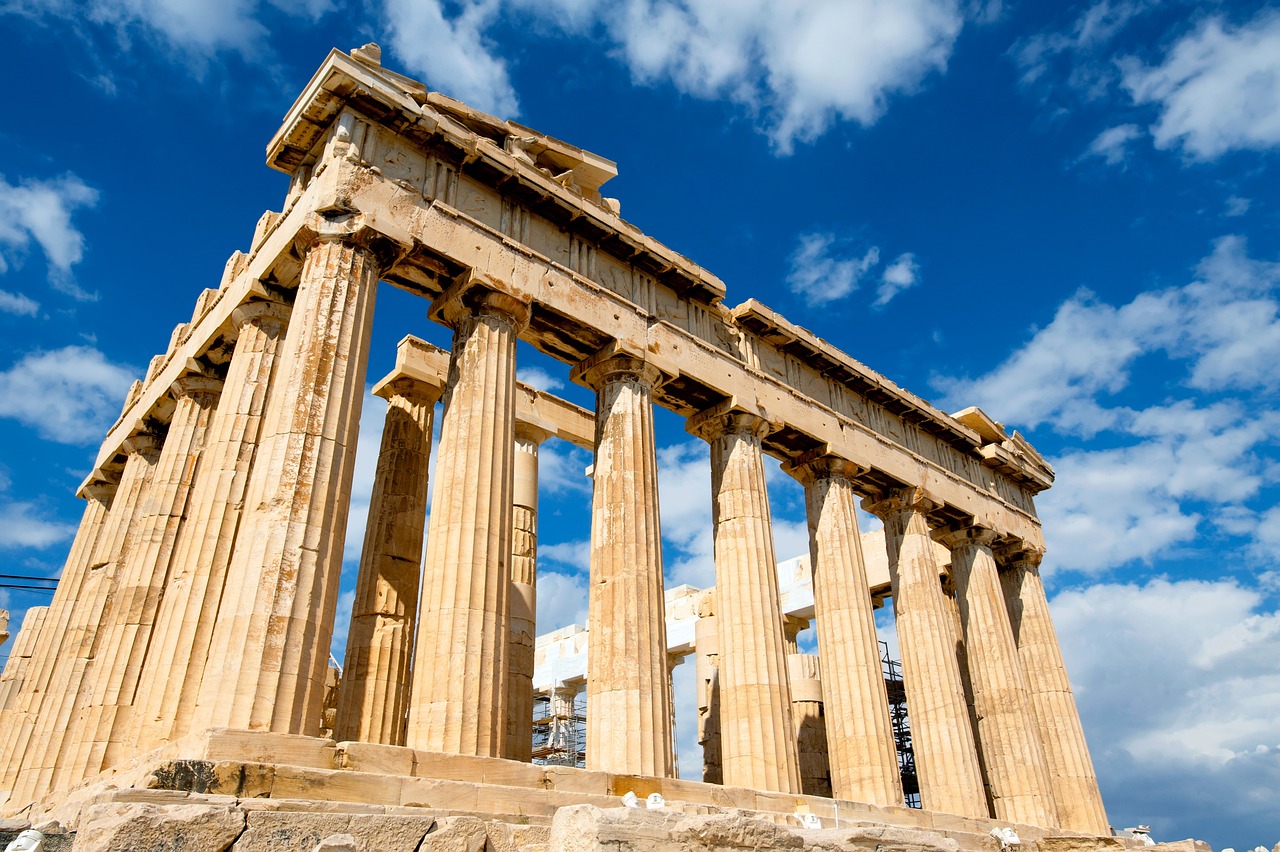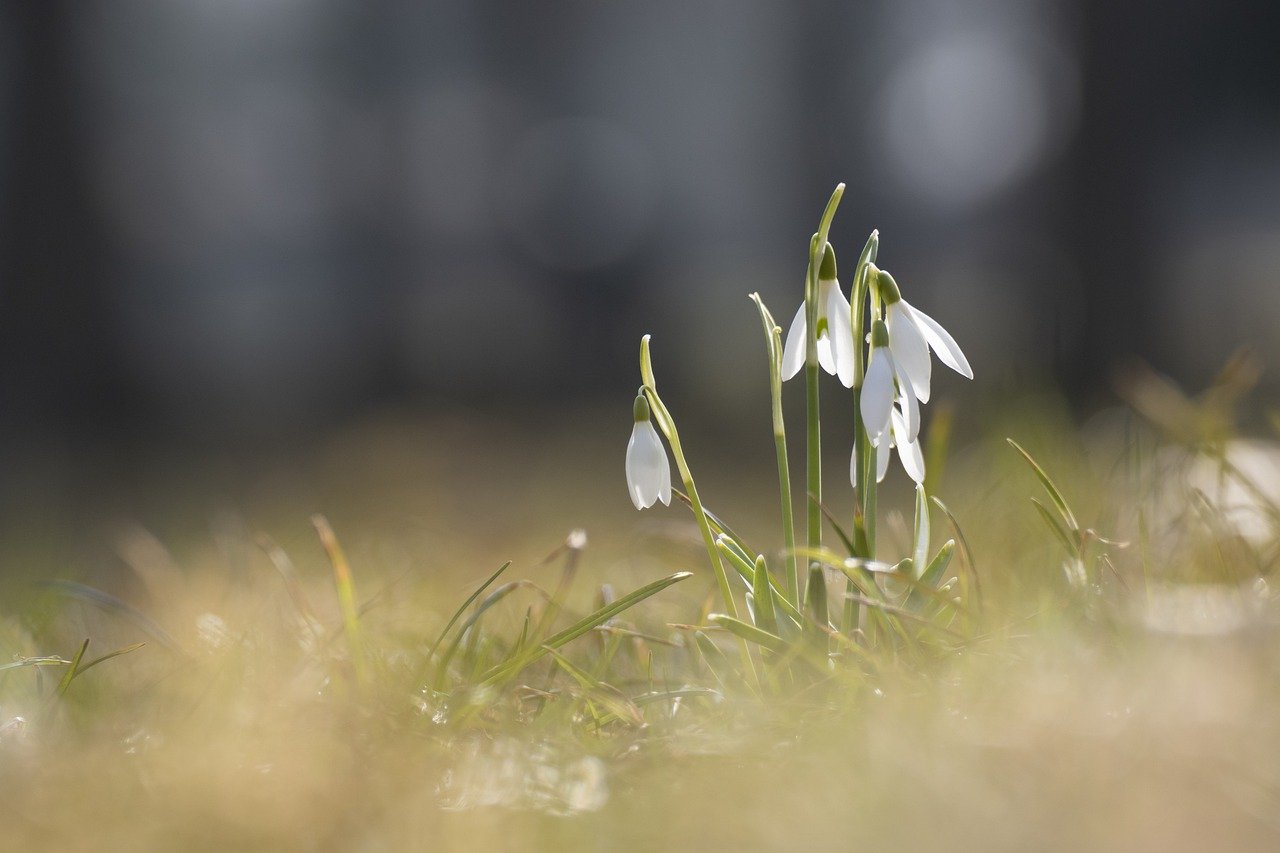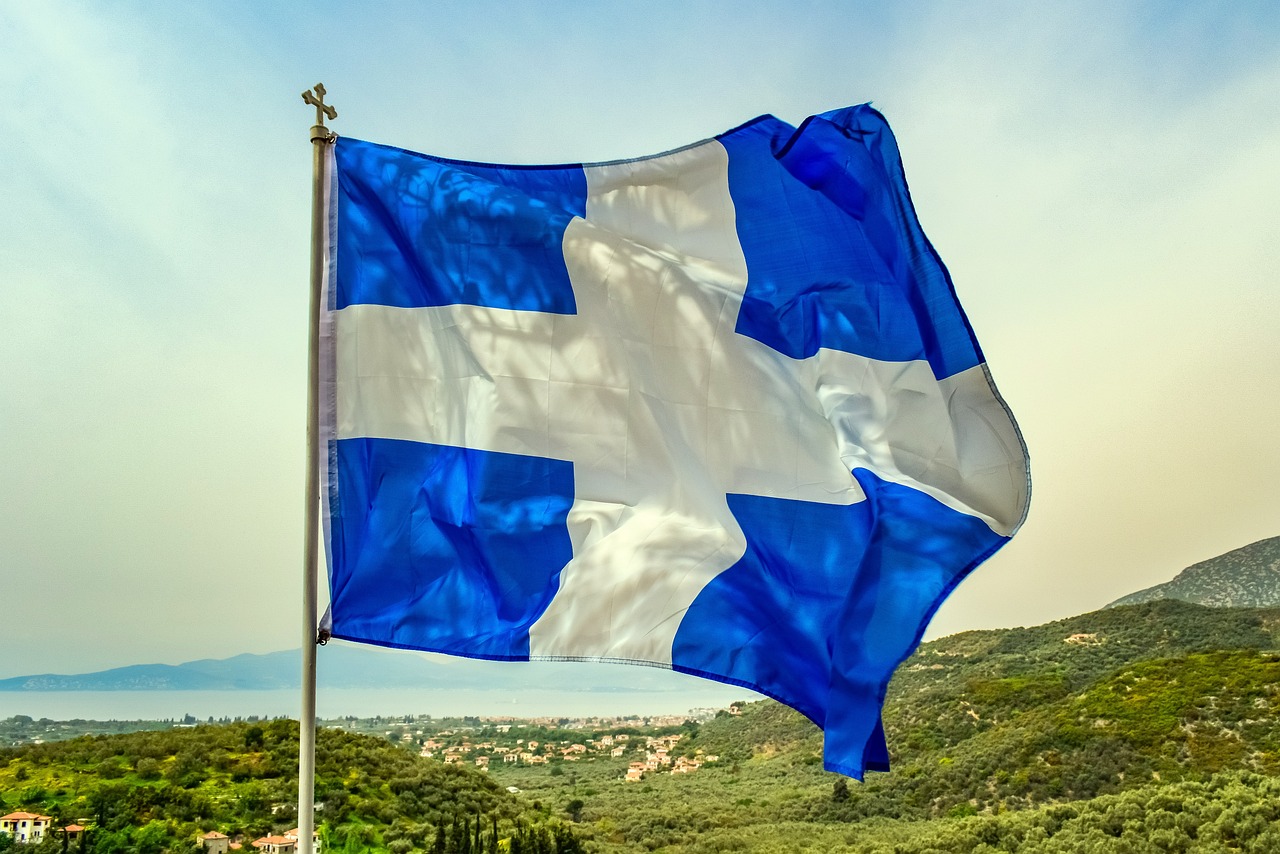A Journey Through Greece's Rites of Spring Festivals
Embark on a fascinating journey through the enchanting realm of Greece's Rites of Spring Festivals, where ancient traditions come alive in a vibrant tapestry of colors and celebrations. These festivals offer a unique glimpse into the rich heritage and cultural tapestry of Greece, showcasing a deep-rooted connection to the changing seasons and the timeless rituals that have been passed down through generations.

The Origins of Greek Spring Festivals
Exploring the vibrant and ancient traditions of Greece's spring festivals, which are deeply rooted in history and culture, offering a glimpse into the country's rich heritage and celebration of the changing seasons.
Delving into the historical and mythological origins of Greece's spring festivals, tracing back to ancient times and the worship of gods and goddesses associated with fertility and rebirth.
In ancient Greece, the arrival of spring was a time of great significance, symbolizing renewal and the cycle of life. The spring festivals were deeply intertwined with the mythological beliefs of the time, honoring deities such as Demeter, the goddess of agriculture, and Dionysus, the god of wine and fertility. These celebrations were not only a way to express gratitude for the bountiful harvests to come but also to seek blessings for fertility and prosperity.
The rites of spring festivals were a reflection of the interconnectedness between nature and human life, with rituals centered around planting, blooming flowers, and the return of migratory birds. These ancient traditions were a way for the Greeks to connect with the natural world and acknowledge the cyclical nature of existence.
One of the most famous spring festivals in ancient Greece was the Anthesteria, dedicated to Dionysus and celebrated in Athens. This festival marked the opening of new wine and was a time of revelry and feasting, as well as a period to remember the deceased.
The origins of Greek spring festivals are deeply rooted in the agricultural practices and beliefs of the ancient Greeks, reflecting their reverence for nature and the divine forces that governed the changing seasons.

Popular Spring Festivals Across Greece
Greece is a country known for its vibrant and diverse spring festivals that are deeply ingrained in the culture and traditions of the different regions. One of the most popular and widely celebrated spring festivals is the Anemone Festival held in the town of Kalavryta in the Peloponnese region. This festival, named after the anemone flower, features colorful parades, traditional music and dance performances, and local delicacies that attract visitors from near and far.
Another iconic spring festival in Greece is the Corfu Easter Celebrations, renowned for its elaborate religious processions and solemn rituals that culminate in a spectacular fireworks display on Easter Sunday. The island of Corfu comes alive with the sounds of church bells and the scent of traditional dishes prepared for the festive occasion.
In the northern region of Greece, the Flower Festival of Arta is a sight to behold, with streets adorned with vibrant floral displays and intricate decorations made from local blooms. This festival pays homage to nature's beauty and the arrival of spring, attracting nature enthusiasts and flower lovers from all over the country.
One of the most unique spring festivals in Greece is the May Day Celebrations in Athens, where locals and visitors alike gather in parks and public squares to enjoy picnics, music performances, and traditional Maypole dances. This festive event symbolizes the renewal of life and the spirit of community coming together to welcome the warmer months.
Lastly, the Rhodes Medieval Rose Festival transports visitors back in time to the medieval era with reenactments, jousting tournaments, and colorful parades featuring elaborate costumes and historical displays. This festival blends history with modern-day celebrations, offering a truly immersive experience for all who attend.

Traditional Rituals and Customs
Traditional rituals and customs play a vital role in Greece's spring festivals, adding depth and meaning to the celebrations. One of the most iconic customs is the practice of decorating homes and streets with colorful flowers, symbolizing the renewal and beauty of spring. The act of flower throwing during festivals such as the Anthestiria in Athens is a joyous tradition that dates back centuries, where participants toss flowers to honor the arrival of spring and commemorate the cycle of life.
Music and dance are integral parts of Greek spring festivals, with traditional folk dances like the Kalamatianos and Tsamiko performed in lively gatherings. These dances not only entertain but also serve as a way to connect with the past and express joy and unity within the community. Costumes worn during these dances often hold symbolic meanings, representing various aspects of Greek culture and history.
Symbolic offerings are another significant aspect of Greece's spring rituals, with people leaving flowers, herbs, and other gifts at shrines and altars dedicated to deities like Demeter and Persephone. These offerings are made as gestures of gratitude for the abundance of nature and as prayers for a fruitful harvest. Additionally, traditional foods such as lamb, fava beans, and cheese pies are prepared and shared during festive gatherings, symbolizing prosperity and togetherness.
The lighting of bonfires is a common ritual during Greek spring festivals, symbolizing the triumph of light over darkness and the return of warmth after the cold winter months. People gather around the fires to sing, dance, and celebrate the coming of spring, fostering a sense of community and connection with nature. These bonfires are often accompanied by storytelling sessions, where myths and legends related to the changing seasons are shared, keeping ancient traditions alive in the modern world.
Overall, the traditional rituals and customs observed during Greece's spring festivals serve not only as a way to honor the past but also as a means to connect with nature, community, and the enduring spirit of Greek culture. These practices reflect the deep-rooted beliefs and values of the Greek people, highlighting the importance of continuity and reverence for the cycles of life and the natural world.

Symbolism and Significance of Spring Festivals
Spring festivals in Greece are not just about celebrating the change of seasons; they hold deep symbolism and significance that is intertwined with the country's culture and history. These festivals are a reflection of the ancient beliefs and traditions that have been passed down through generations, connecting people to their roots and the natural world around them.
One of the key symbols of Greek spring festivals is the emphasis on rebirth and renewal. As the winter fades away and nature begins to bloom, these festivals mark a time of new beginnings and growth. The rituals and ceremonies performed during these celebrations often revolve around themes of fertility, prosperity, and the cycle of life.
Flowers play a significant role in the symbolism of spring festivals in Greece. They are seen as symbols of beauty, purity, and the fragility of life. The use of flowers in decorations, garlands, and offerings during these festivals is a way to honor nature's abundance and to invoke blessings for a fruitful year ahead.
Another important aspect of the symbolism of Greek spring festivals is the connection to ancient mythology. Many of the rituals and customs practiced during these festivals are rooted in the stories of gods and goddesses such as Demeter, Persephone, and Dionysus, who are associated with fertility, agriculture, and the changing of seasons.
Furthermore, the significance of music and dance in spring festivals cannot be overlooked. These forms of artistic expression are not just for entertainment but are integral parts of the rituals, symbolizing harmony, joy, and unity within the community. The rhythmic movements and melodies are believed to bring about a sense of balance and spiritual energy during the festivities.
Overall, the symbolism and significance of Greece's spring festivals go beyond mere celebrations; they serve as a reminder of the interconnectedness of humanity with nature, the cycles of life, and the enduring traditions that continue to shape the cultural identity of the country.

Culinary Delights of Spring Festivals
When it comes to Greece's spring festivals, it's not just about the vibrant parades and traditional dances - the culinary delights play a significant role in the celebrations as well. These festivals are a feast for the senses, offering a tantalizing array of dishes that are deeply rooted in the country's culinary heritage.
One of the most iconic dishes associated with Greek spring festivals is the traditional spanakopita, a savory pastry filled with spinach, feta cheese, and herbs. The flaky layers of phyllo dough combined with the rich filling create a mouthwatering experience that is both comforting and flavorful.
Another must-try delicacy during these festivals is the delectable souvlaki, skewers of grilled meat (usually pork or chicken) served with pita bread, tzatziki sauce, and a side of fresh vegetables. The aroma of the sizzling meat on the grill is enough to make anyone's mouth water.
For those with a sweet tooth, Greek spring festivals offer an array of tempting desserts, such as the traditional baklava - layers of crispy phyllo dough, nuts, and honey syrup that create a symphony of flavors and textures in every bite. And let's not forget about loukoumades, fluffy fried dough balls drizzled with honey and sprinkled with cinnamon - a heavenly treat that is sure to satisfy any dessert craving.
In addition to these classic dishes, each region of Greece has its own specialties and unique recipes that are showcased during the spring festivals. From hearty stews and grilled seafood to delicate pastries and refreshing salads, the culinary offerings are as diverse as the country's landscape, reflecting the rich tapestry of flavors and ingredients that make Greek cuisine so beloved.
So, as you immerse yourself in the festivities of Greece's spring celebrations, don't forget to indulge in the culinary delights that are an essential part of the experience. From savory to sweet, traditional to modern, the food served during these festivals is a true reflection of the country's culinary prowess and cultural heritage.

Modern-Day Celebrations and Adaptations
Modern-Day Celebrations and Adaptations in Greece's spring festivals showcase a fascinating blend of ancient traditions with contemporary influences. As the world evolves, so do these vibrant celebrations, finding ways to stay relevant and engaging for modern audiences. While the essence of the festivals remains rooted in history and culture, there is a noticeable shift towards incorporating new elements to appeal to a wider demographic.
One aspect of modern-day celebrations is the integration of technology and social media to promote and share the festival experiences with a global audience. From live streaming of events to interactive social media campaigns, these festivals are leveraging digital platforms to attract more visitors and generate interest worldwide. This adaptation not only enhances the visibility of the festivals but also ensures their longevity in the digital age.
Moreover, the younger generation's participation and influence on the spring festivals have led to a reinterpretation of traditional rituals and customs. With a fresh perspective and innovative ideas, the youth are infusing new energy into these age-old celebrations, bringing a contemporary twist while respecting the cultural roots of the festivals. This dynamic exchange between generations ensures that the festivals remain dynamic and appealing to a diverse audience.
Additionally, the incorporation of eco-friendly practices and sustainability initiatives in the organization of spring festivals reflects a growing awareness of environmental issues. From reducing waste and promoting recycling to supporting local artisans and businesses, these adaptations align the festivals with modern values of conservation and responsible tourism. By embracing eco-conscious practices, Greece's spring festivals are not only preserving their cultural heritage but also contributing to a greener future.

Impact of Tourism on Spring Festivals
When it comes to the impact of tourism on Greece's spring festivals, there is a delicate balance that must be maintained between preserving ancient traditions and catering to the demands of modern visitors. The influx of tourists has undoubtedly brought attention and economic benefits to these cultural celebrations, but it has also raised concerns about the authenticity and integrity of the events.
One of the most significant impacts of tourism on Greece's spring festivals is the commercialization of certain aspects of the traditions. As more tourists flock to witness these unique events, there is a growing pressure to cater to their expectations and preferences, sometimes at the expense of diluting the original essence of the festivals.
Furthermore, the increased tourism has led to a shift in the way these festivals are presented and experienced. While efforts are made to showcase the authenticity of the rituals and customs, there is a fine line between sharing the cultural heritage with a wider audience and turning the festivals into mere spectacles for entertainment.
On the positive side, tourism has also provided opportunities for local communities to showcase their traditions and craftsmanship, creating a platform for cultural exchange and mutual understanding. Visitors have the chance to immerse themselves in the vibrant atmosphere of the festivals, supporting local businesses and contributing to the sustainability of these age-old practices.
However, it is crucial to strike a balance between promoting tourism and preserving the essence of Greece's spring festivals. Sustainable tourism practices that respect the cultural heritage and natural environment are essential to ensure that these traditions continue to thrive for generations to come.

Preservation Efforts and Future Outlook
Preserving the ancient traditions and cultural heritage of Greece's spring festivals requires a concerted effort from both local communities and authorities. Various organizations and institutions are actively involved in documenting, safeguarding, and promoting these age-old customs to ensure they are passed down to future generations. Through educational programs, cultural events, and initiatives, steps are being taken to raise awareness about the importance of preserving these rituals.
Furthermore, the integration of technology and digital platforms has played a significant role in the preservation of Greece's spring festivals. Online archives, virtual tours, and interactive exhibits allow people from around the world to engage with these traditions, fostering a sense of appreciation and understanding for the cultural significance they hold. By leveraging modern tools, the efforts to safeguard these festivals are amplified and reach a wider audience.
Looking ahead, the future outlook for Greece's spring festivals is a blend of tradition and innovation. While the core rituals and customs remain steadfast, there is a growing trend towards adapting these celebrations to meet the evolving needs and interests of contemporary society. This delicate balance between honoring the past and embracing the future ensures that these festivals continue to thrive and remain relevant in a rapidly changing world.
As the world continues to evolve, the challenge lies in finding ways to sustain the authenticity and essence of Greece's spring festivals while also allowing for adaptation and growth. By fostering a sense of community involvement, encouraging intergenerational participation, and fostering a spirit of inclusivity, the future of these ancient traditions appears promising. Through ongoing dedication and collaboration, Greece's spring festivals are poised to endure and enchant for generations to come.
Frequently Asked Questions
- What are the most famous spring festivals in Greece?
Greece is known for its vibrant spring festivals, with some of the most famous ones being the Anthestiria Flower Festival in Attica, the Easter celebrations in Corfu, and the May Day festivities in Hydra.
- What is the significance of spring festivals in Greek culture?
Spring festivals in Greece hold great cultural significance as they are rooted in ancient traditions that celebrate the renewal of life, fertility, and the changing of seasons. These festivals also pay homage to various gods and goddesses associated with spring.
- How are modern-day celebrations different from traditional practices?
Modern-day celebrations of Greek spring festivals have evolved to incorporate contemporary elements while still honoring traditional customs. This blend of old and new ensures that the festivals remain relevant and appealing to both locals and tourists.
- What impact has tourism had on Greece's spring festivals?
Tourism has influenced Greece's spring festivals by bringing in a larger audience and introducing commercial aspects to some of the celebrations. While this has led to increased visibility, efforts are made to balance authenticity with the demands of modern tourism.
- How can one participate in Greece's spring festivals?
To participate in Greece's spring festivals, visitors can join in the public events, watch traditional performances, sample local cuisine, and interact with the community to experience the rich cultural heritage and festive spirit of these celebrations.



















